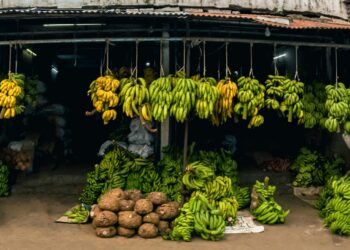India has applied for two new permits from the U.N.’s International Seabed Authority that would allow it to mine the Indian Ocean for precious minerals crucial to the green transition.
India is chasing massive deposits of cobalt, copper, manganese, and nickel found on the sea floor despite widespread fears about the environmental impact of mining these materials.
If the new permits are granted, India will secure as many mining licenses as Russia, and one less than China. India is motivated to stay ahead in the race to mine for crucial minerals, and the Indian Ocean hosts a huge reserve of potential deposits. The country is also keen to demonstrate it is a leading player in the field.
“India may be ultimately seeking to project that it is a powerhouse in its own right, one that is not to be outrivalled in its own backyard, as well as to give the impression that it is not lagging behind the Chinese when it comes to the deep sea,” Pradeep Singh, who works on ocean governance at the Research Institute for Sustainability in Germany, told the BBC, last week.
The UN-affiliated International Seabed Authority (ISA) has issued 31 exploration licences so far, of which 30 are active. Its member countries are meeting in Jamaica this week to discuss regulations around giving out mining licences.
If the ISA approves India’s new applications, its licence count will be equal to that of Russia and one less than China.
One of India’s applications seeks to explore polymetallic sulphides – chimney-like mounds near hydrothermal vents containing copper, zinc, gold and silver – in the Carlsberg Ridge of the Central Indian Ocean.
The ISA’s legal and technical commission has sent a list of comments and questions about this to the Indian government, according to a report seen by the BBC.
In response to the other application – to explore the cobalt-rich ferromanganese crusts of the Afanasy-Nikitin Seamount in the Central Indian Ocean – the commission has noted that another unnamed country has claimed the seabed area (that India has applied for) as part of their extended continental shelf and asked India for a response.
“The Indian Ocean promises tremendous potential reserves and that expanse has motivated the government of India to increase its scientific exploration of the ocean’s depths,” says Nathan Picarsic, co-founder of Horizon Advisory, a US-based geopolitical and supply chain intelligence provider.
In 2022, India’s National Institute of Ocean Technology conducted trials of its mining machine at a depth of 5,270m in the central Indian Ocean basin and collected some polymetallic nodules (potato-shaped rocks that lie on the seafloor and are rich in manganese, cobalt, nickel, and copper).
The US is not part of the race to mine international waters as it has not ratified the UN Convention on the Law of the Sea, the agreement which led to the creation of the ISA. Instead, it aims to source minerals from its domestic seabed and process ones mined by its allies from international waters.
Supporters of deep seabed exploration say that mining on land has almost reached a saturation point, resulting in low-quality production, and that many of the mineral source-areas are plagued by conflict or environmental issues.
Environmental campaigners say the deep seabed is the last frontier in the planet that remains largely unstudied and untouched by humanity and mining there could cause irreparable damage, no matter how pressing the need.
Around two dozen countries – including the UK, Germany, Brazil and Canada – are also demanding either a halt or a temporary pause on deep-sea mining, given what they say is a lack of information about the marine ecosystems in those depths.





